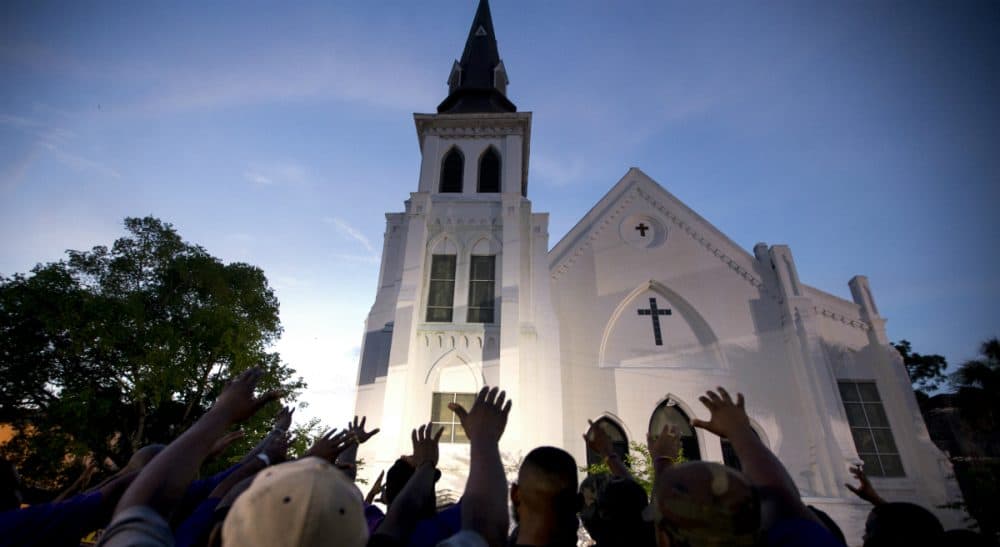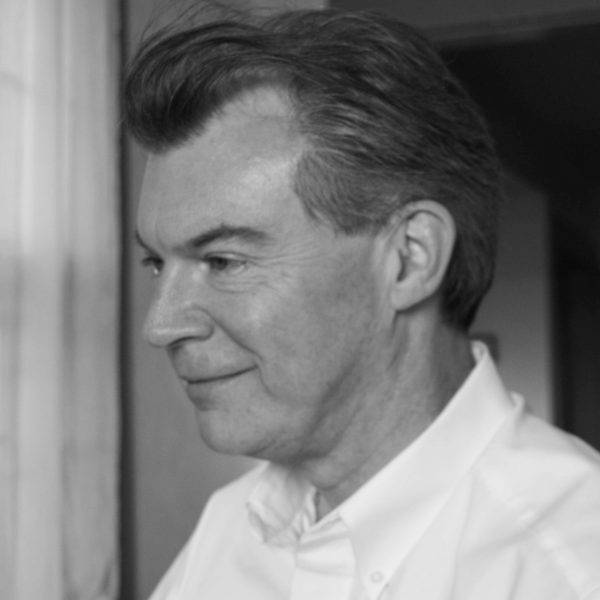Advertisement
From Charleston To Orlando And Beyond: Confronting Our Essential American Sin

Editor's note: This piece has been updated since its original publication date.
Just as we were preparing to pause to reflect on the sad anniversary of the mass shooting in the basement of a Charleston church, another, even more horrific shooting has seized our attention and sharpened our fears. How shall we respond?
One answer, dependably heard in the wake of all these incidents (and now by one of the remaining candidates for president), is: more guns. More firepower. More potential tragedy.
...another, even more horrific shooting has seized our attention and sharpened our fears. How shall we respond?
But none of that solves the problem of fear. On the contrary, it strengthens our fears by arming them. That will solve nothing.
I propose a different answer, one that seeks to address fear directly, by bringing us, unarmed, to confront its source. It is an answer with deep roots in history, and perhaps the only true hope for the future. And I can testify from my own experience that it has profound capacity for making change.
That answer is the pilgrim’s journey.
The pilgrim’s journey is a shared experience of many religious traditions. Most of us know of the pilgrimage to Mecca that faithful Muslims hope to make at least once. A visit to Jerusalem three times each year was a feature of ancient Jewish tradition, and the faithful still visit the Western Wall of the Second Temple. Hindus have dozens of pilgrimage sites across India; Sikhs visit the birthplace of Guru Nanak in Pakistan.
Christianity, too, has its traditions of pilgrimage, many of them focused on witness of martyrs. Down through the ages, pilgrims seem to have been drawn to places where the blood of faithful innocents has been shed. If you ever read the Canterbury Tales, you read a fanciful collection of stories told by a group of pilgrims headed to the place where Bishop Becket was murdered in his cathedral for standing up to King Henry II.
Advertisement
I suppose that was something of the urge that found me in Charleston, South Carolina, this past November. I was in the city for a meeting, but I remained for a Sunday so I could attend services at Mother Emanuel Church, the place where Pastor Clementa Pinckney and eight members of his congregation were murdered as they gathered for a Wednesday-night Bible study.
What struck me most deeply about that place of worship was the sheer joy of the people whose home it is — a joy that is, perhaps, the greatest defiance possible to the human hatred that brought death through their doors. There was no mention of the atrocity that had taken place within those walls, at least not by the people whose church it is; no act of remembrance for the dead, no anger or bitterness. Those of us who came as pilgrims all sat in the back pews, not quite knowing how to be there but knowing that we had to be; we were made to feel profoundly welcomed and included, acknowledged as the seekers we were.
I wouldn’t have been surprised by words of bitterness in the preaching or cries for vengeance in the prayers. But I heard none of that. Instead, I was invited to join their prayers for healing and reconciliation. I heard a classic three-point sermon about the power of love to replace hatred with hope in the human heart. And on what was the Sunday of the Veterans’ Day holiday, I listened in no small amazement as the entire congregation stood and sang, without irony or cynicism, “God Bless America.” I have never been so moved by that song as I was in that place and by those voices, and it brought me to tears.
The point of a pilgrimage, of course, is not the destination but the journey, and the change in perspective, the conversion of attitude, the journey makes possible. I went knowing that, as a white man in America, I cannot ever understand the depth and length of the injustice felt by communities of color, especially where violence has sought to block the path toward true equality. But I also went knowing that the conversion of fear into hope has to happen at the level of each human heart, and that the witness of people who have overcome violence with quiet faith is the greatest argument in favor of the power and possibility of faith.
I hope Mother Emanuel will become a place of American pilgrimage, one uniquely able to help us confront our essential American sin.
We don’t need more weapons to make ourselves safer. We need more places of pilgrimage. And we need to go, not as tourists, but as pilgrims — people willing to be changed.
We need more of us to be traveling to the 16th Street Baptist Church in Birmingham, to remember the sacrifices made by those who fought for civil rights. Or to the Stonewall Inn in New York, to remember the hatred and injustice that the LGBT community still faces. Or to Wounded Knee, to bear witness to the injustices visited on indigenous peoples across the American continent.
I hope Mother Emanuel will become a place of American pilgrimage, one uniquely able to help us confront our essential American sin. I can tell you that if you go, you will be welcomed. And you will be changed, too.
This article was originally published on June 09, 2016.
